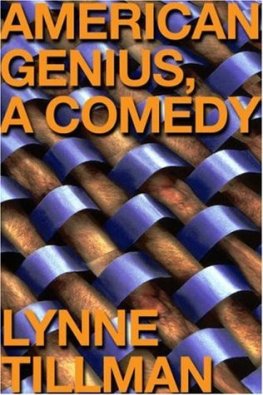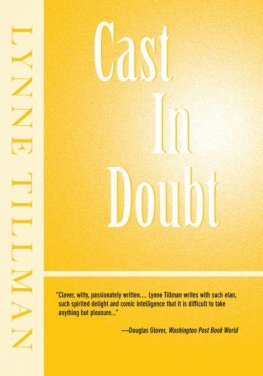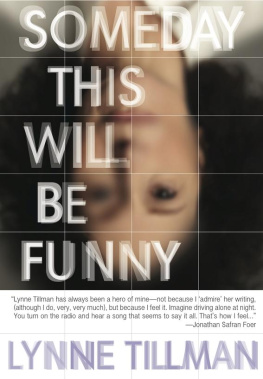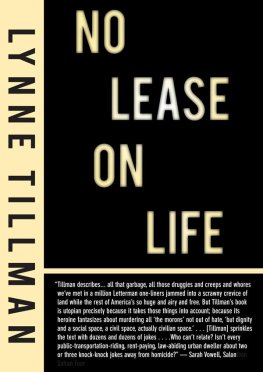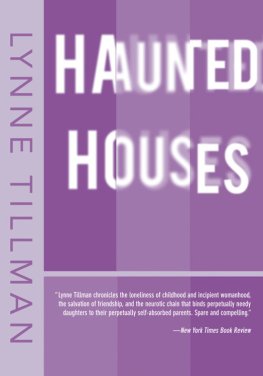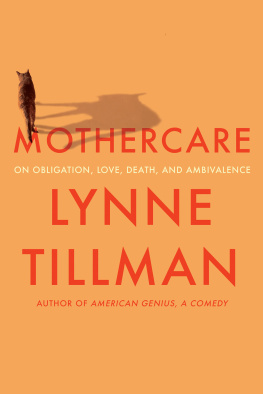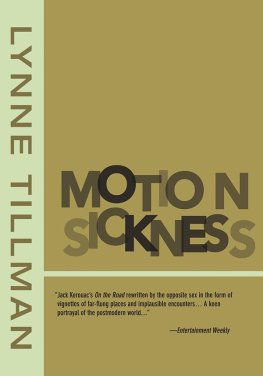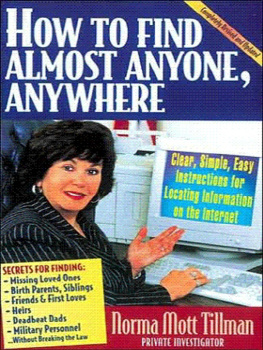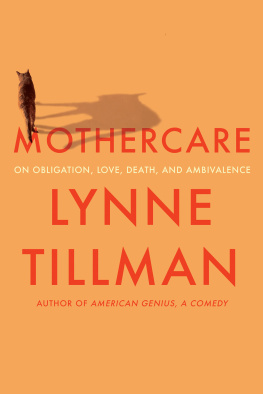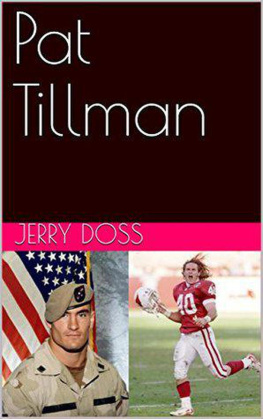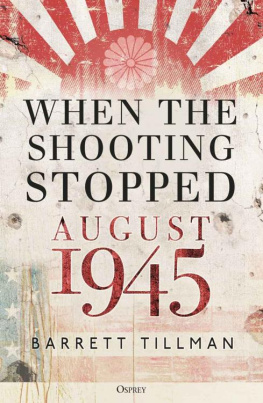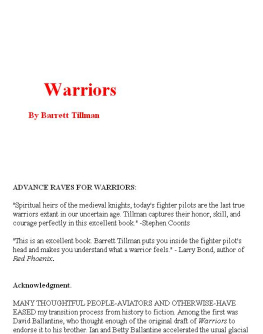What Would Lynne Tillman Do?


For Dr. Stanley Grand
Red Lemonade
a Cursor publishing community
Brooklyn
Copyright 2014 by Lynne Tillman.
Library of Congress Control Number available from the Library of Congress.
Book Design by Luke Gerwe
Copyediting by Nora Nussbaum
eBook ISBN:978-1-9358-6922-1
Red Lemonade
a Cursor publishing community
Brooklyn, New York
www.redlemona.de
Distributed by Publishers Group West
Table of Contents
Her aura as she moved onto the stage was both casual and nervous. It was clear that she had done this before. She was not going to stumble or fumble to get the audience on her side, but that confidence was matched by a guardedness, an unease, and a way of maintaining a distance that might have been theatrical. I was not sure. In one of her books, she writes of a character: Once she dreamed, on the night before a reading she was to give, that rather than words on paper, there were tiny objects linked one to another, which she had to decipher instantly, and turn into words, sentences, a story, flawlessly, of course.
She was wearing black; she had a glass of whiskey on the rocks in her hand. Her delivery was dry, deadpan, deliberate. There was an ironic undertow in her voice, and a sense that she had it in for earnestness, easy emotion, realism. She exuded a tone which was considered, examined and then re-examined. She understood, it seemed to me, that everything she said would have to be able to survive the listeners intelligence and sense of irony; her own intelligence was high and refined, her sense of irony knowing and humorous.
I had not come across anyone like her before. It was May 1990 and both of us were touring what they call the United Kingdom in the company of an English writer. All three of us were promoting books. Although I had been in New York once and had read American fiction and seen the movies, I had never really known any Americans. Thus I could not place Lynne Tillman. All I could do was watch her.
One thing she said made me laugh. When our English friend spoke of London and how hard it was to live there since it was so large and one had to travel miles and miles to have supper with friends, and then, if they moved, one often had to travel farther and indeed farther to see them, Lynne looked pained at all this talk of traveling and said: Oh, no. In New York, if someone moves more than a few blocks away, you just drop them.
In one of the cities, there was a friend of mine in the audience. The following morning, as we were setting out on a long journey by car, our English colleague having found her own transport, I had a feeling that Lynne was fragile. But it did not stop her asking about my friend. I still could not read her tone and was not certain that there was not an edge of mockery in her voice, perhaps mockery at the very idea of having a friend who lived in a provincial part of the United Kingdom.
I decided it was time to do something.
Do you like Joni Mitchell? I asked.
No, she replied instantly.
Well, my friend was like Richard in Joni Mitchells The Last Time I Saw Richard. Would you like me to sing the relevant lines?
No, she said again.
As I seemed to be preparing to sing, she appealed to the driver.
I began to sing. (I am not a good singer.)
Richard got married to a figure skater
And he bought her a dishwasher and a coffee percolator
And he drinks at home now most night with the TV on
And all the house lights left up bright.
Lynne Tillman moaned as we drove north. And even when the singing ended, she moaned more in case it might start again. I gave her ample feeling that the risk was high, as I took her though the lyrics of A Case of You, California, and Little Green. Often, I threatened to sing the words out, rather than simply recite them, just to help us on our journey, but even the driver protested. I liked the idea that Lynne Tillman, who I thought thenwrongly, as I discoveredwas the coolest person alive, had met me, a boy from a small town in Ireland who was a complete fool and had not learned any strategies to disguise this dreadful and shameful fact. It might not have helped that my reading the previous evening had given strong intimations that I had been trained in the old school to understand the importance of being earnest and that I had not gone to any other school.
During the days that followed, Lynne Tillman got a pain in her back. She often had to lie flat on the ground. Maybe it was caused by the English motorways; maybe it was caused by having to do a reading every night; maybe it was a leftover from jet lag. But there remained a feeling in the air that her back pain had been caused by me. The pain was not improved by my attempting at one point to pat her heartily on the afflicted region and telling her that she would be better soon. But slowly, perhaps because I was reading her book in the evenings and listening carefully to her readings, I was learning that she was a much more complex figure than I had imagined when I saw her first. She was more thoughtful and serious somehow, also kinder and more considerate and oddly vulnerable. And also, more than anything, she was a rich noticer of strange things and a good maker of sentences and phrases.
*
In the 1930s, as the writer Samuel Beckett tried to make sense of himself, he attended a lecture by Carl Jung in London in which Jung outlined the case of a patient, now adult in age, who had not actually been born, whose spirit, or essence, or essential self had not come into the world when the body did. For any writer of fiction, such an idea is fascinating. (Sometimes, Lynne Tillman wrote, Madame Realism felt as if she just didnt exist.) For many people such a condition is almost normal; for writers it is almost a regular part of being alive in the world and a central part of the process of inventing character in fiction. In much fiction done in the years after Jungs lecture, there is always something missing, something which has not been integrated. The point is to explore that lovely missing thing, a thing whose very absence may indeed constitute the self, the core, the ache. It is possible that the idea of a personality or a person without this flaw, or this gift, or whatever we want to call itBeckett liked to call it Murphy or Watt or Malone or Moran or Winnieis a myth or a dream or an image from an advertisement for something, and that it is the task of novelists to dramatize the gap between the strangeness of being alive filled with glittering and fleeting desires, filled with shattering absences, and the ideal, whole, and intolerable completed personwhat we might also think of as creating the credible character. Identity is such a fragile thing, Tillmans Madame Realism muses in an essay on Freud. In an interview conducted by Tillman for
Next page

